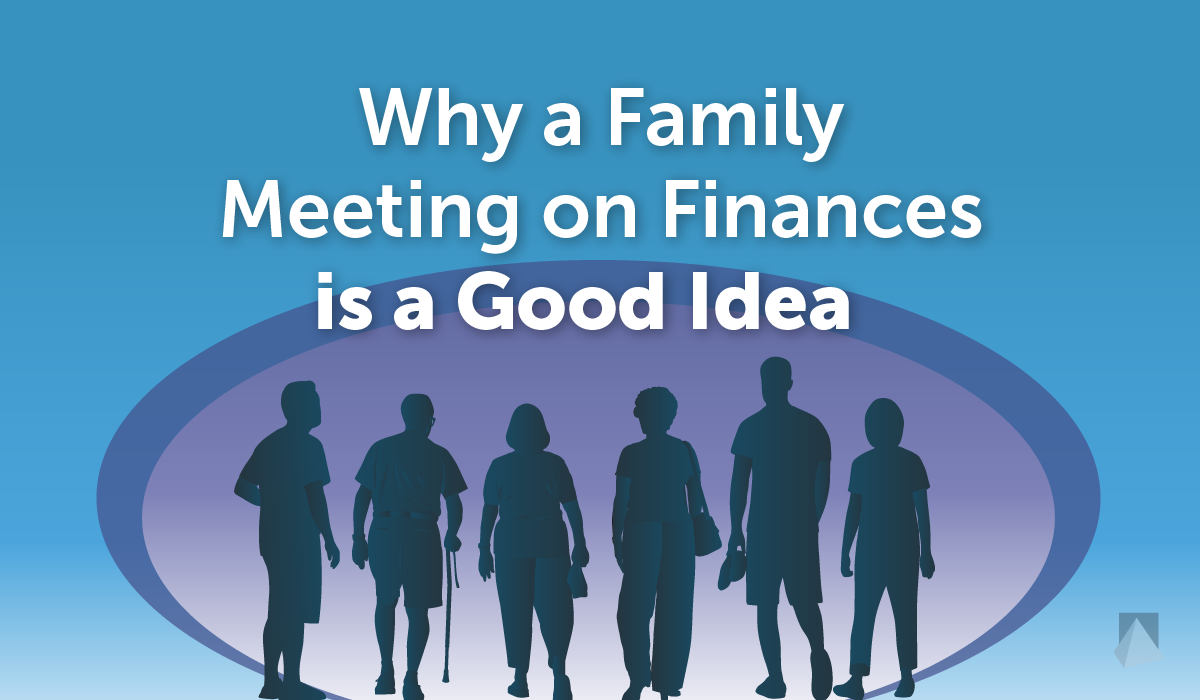
Planning a conversation with your loved ones about your financial plans and goals may not be easy, but it can help you feel more confident about your family’s financial health and your peace of mind.
When you’ve put together the basics of your estate plan, the best way to involve your loved ones in the process is by calling a family meeting. Your goal is to help your loved ones understand your estate and to let them hear your wishes in person rather than after you’re gone. We are always honored when clients ask us to host and facilitate these meetings at the Clute Wealth Management offices.
Why is a family meeting important?
Talking now can prevent family disputes later
A good estate plan is more than a written will—it also involves in-person communication. Lack of communication can disrupt even the best-laid plans and could harm family relationships. A family meeting allows you to communicate your wishes for how your assets will be distributed. The better your loved ones understand your goals and desires, the more likely it is for your intentions to be implemented.
Let your loved ones know where to turn for help
Your loved ones need to know the people are who can help them with the process of managing an estate. You want everyone to have the contact information for your financial advisor, attorney, accountant, and any other professional you consult as a trusted team member. After you’re gone, your loved ones will find it extremely helpful to be familiar with and know how to coordinate with your team. Family members should also know the whereabouts of— and know how to access— essential documents, along with keys to safety deposit boxes or other storage.
Make sure loved ones know how to implement the plan
Your heirs may need help navigating implementation of your estate even if your family has a solid estate plan. At a meeting, you can make sure that your family will have the understanding and support they need to handle these tasks when you are gone. Now is the time to designate the estate executor — who may or may not be a family member. If this person is also a healthcare proxy, you want to make sure they know what to do if you become ill or incapacitated.
Make sure your goals and values are understood
At a meeting, you can make sure your family understands not only your wishes but also exactly how they should be respected. For example, you might want to specify who will receive special treasured possessions or make sure a vacation home remains in the family. Managing assets can be complicated but a meeting can help you and everyone else feel more confident your plans will be carried out successfully.

Discuss your plans for charitable giving
Protecting the environment, supporting arts and education, or helping those in need is important to many families. Your family meeting lets everyone learn which causes are closest to your heart, as well as why and how specific assets will be donated after you’re gone.
What do you talk about in a family meeting?
Every family is different. We find that an agenda covering four topics, in as much or little detail as you’re comfortable with, can work for most family situations and dynamics.
1. Health Care DirectivesYour health care directive is often considered the driving reason to schedule a family meeting sooner rather than later. Even if your estate planning is not yet complete, you want your family to know your wishes if a sudden accident causes your incapacitation.
Your family needs to clearly understand how you want to be cared for if you become incapacitated. For example, discuss whether you’ve signed a Do Not Resuscitate order stipulating a wish for a natural death in certain circumstances. They also need to know who your living will designates as a health care proxy to make critical medical decisions on your behalf if you’re unable to do so and who has the power of attorney when it comes to paying for your health care costs.
2. Estate StructureIs your estate organized through a last will and testament, an irrevocable trust, a living trust, a charitable remainder trust, or a combination of legal documents? Since this may be the first time your loved ones have heard these terms, it is helpful to explain terms in everyday language and offer examples or resources for additional information. In addition, it can be effective to ask your financial advisor or estate attorney for suggestions.
3. Assets and DistributionYou may or may not be ready yet to share details about your assets and how you want them to be distributed after your death. Each family’s dynamics are unique and tend to vary and evolve over the years as your life changes, children grow into adults, marry or not, have their own children or not, financial and health situations change, relationships and interests change — as life happens. Even if you are not ready to share details, this is the time to share your approach. Examples of distribution approaches include:
- Equal distribution of assets among your heirs
- A varying percentage among your heirs based on age, special needs, or circumstances
- Specified assets to each heir, including named charitable organizations.
Before closing your family meeting, you want to be sure:
- You have answered any questions.
- Everyone involved has contact information for your financial advisor, attorney, accountant, executor, healthcare proxy, and any other key person you consult with regularly.
- You have met your goals for the family financial meeting.
After your initial family meeting on finances, you may or may not feel the need for additional meetings. Because situations can change over the years, we suggest reviewing your estate plan every few years and scheduling a follow-up financial family meeting every five years. Knowing that you have planned for life changes will help you sleep even more soundly at night.
Resources
Gifting and Your Legacy: When is the best time to give?
Basics of Trust and Estate Planning [Video]
Estate Planning to Avoid Family Discord
------------------
Christina Ubl, CFP® of Clute Wealth Management in South Burlington, VT and Plattsburgh, NY, an independent firm that provides strategic financial and investment planning for individuals and small businesses in the Champlain Valley region of New York and Vermont. Christina is a member of the inaugural group to successfully complete the American Heart Association and Financial Planning Association® certificate program, Philanthropic Solutions in Financial Planning. Content in this material is for general information only and not intended to provide specific advice or recommendations for any individual. This information is not intended to be a substitute for specific individualized tax or legal advice. We suggest that you discuss your specific situation with a qualified tax or legal advisor.
